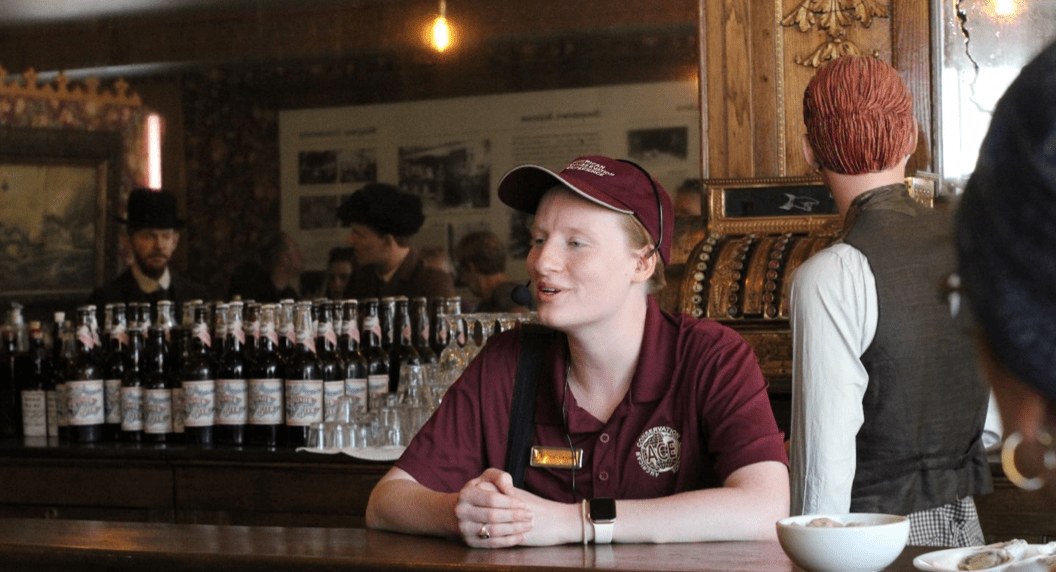By Briana Campbell
Squished in-between the egg toss contest and flow of food on the Fourth of July is the crux of the holiday: celebrating the freedoms America offers. Who is entitled to those freedoms has drastically changed since 1776. In the week leading up to the Fourth of July, I was left pondering who this holiday was meant for. Was it meant for everyone in America or was it still meant for the same demographic as in 1776. Who was able to exercise their freedom in that period? It certainly wasn’t for everyone. Not the people who were enslaved by writers of the Declaration of Independence. Nor the women whose duty was to bare children rather than arms. One’s freedom depended on circumstances that they couldn’t change: the color of their skin and their sex. Those who were free were unmarked in identity, white men. There was always hope that their life could be improved. They weren’t as restricted when it came to opportunities to transcend their current situations. They one day could own property allowing them to vote. But that wasn’t true for everyone else. More than money was needed to transcend their life situations. Rights to autonomy, rights to vote, rights to not be owned by another person needed to be earned over time not given. Freedom wasn’t inherit in 1776 for everyone. Is it today?
During the Fourth of July I was chatting with my fellow intern Devan, who is here at Klondike Gold Rush National Historical Park through HBCU, about some festivities in town and who was celebrating them. She had recently helped implement a Juneteenth program that raised awareness about the news of freedom of enslaved people in Texas arriving two years after the abolition of slavery. There was this underlying question of just because it is law does it mean that it gets to the people who are most impacted. Will those maintaining the status quo allow it to be upheaved? Largely from my experience I’ve gathered that there is resistance to any challenge to the status quo. For example, take Rose Arnold and Ruth Brown, two black women who worked in the sex industry during the Klondike Gold Rush, that were charged with “being an inmate of a house of ill-repute”. Instead of pleading guilty, like all the other women who were also engaged in the same line of work, they decided that they would challenge Magistrate Tanner by pleading not guilty. Who has the power? Those with an office or the everyday people who are engaged in similar affairs? It is the one whose voice can be heard via voting and ability to serve on juries?
If the jury found these women not guilty the system Tanner had worked hard to preserve would fall. Without the fees being accepted by women and others who engaged in less “morally” upstanding affairs, like prostitution, the city and Tanner would be out $200 a year, or nearly $2,000 today, and that adds up. It would have started with these two but at the time there were tens and tens of others who were also being charged for engaging in the same behaviors. Would they want to get charged for this? Of course not. But the reality of the situation was that these women and people like them lacked power and authority. Women, much less women of “ill repute”, couldn’t serve on juries much less vote for those in power. Thus Tanner was able to select the jury that would ensure the status quo be maintained while the delinquent behavior was smothered. A $141 fine was slapped on to the court fees for Rose Arnold and Ruth Brown walked away with a $25 fine along with court fees. But monetary fines were the least of their problems. They were a challenge, a threat if you will, to the status quo and must not be allowed to challenge it further. Rose and Ruth’s money wasn’t just on the line but their lives. You can’t challenge the status quo without consequences. Within a month of the end of their trial Rose and Ruth leave for Juneau in February 1902.
If it was not for people willing to rebel against a system they view as unjust would we still have a government that restricts freedoms de jure? People would still be objects that those in power were allowed to buy, sell, and trade with little consequence. We aren’t there today but we aren’t at a place where everyone is afforded the same freedoms and rights: Declaration of Independence clearly states “that all men are created equal”. When will all people be treated equally?


